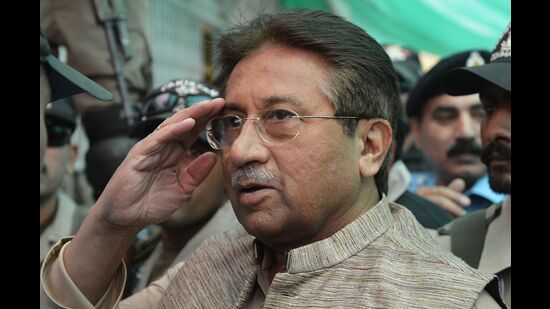Lessons for Pak from the Musharraf era
At a time when Pakistan faces a fresh round of political uncertainty, the Musharraf era could serve as a lesson on the perils of military intervention in politics, and the futility of myopic actions to shore up domestic popularity
Former Pakistani military dictator Pervez Musharraf’s nine years in power were a tale of stark contrasts. The Delhi-born general was initially welcomed by people who had tired of civilian governments perceived as corrupt, but had to bow out in ignominy after imposing emergency twice and leaving the country’s security situation at its most fragile in decades. General Musharraf was the last in a string of military strongmen who ousted elected civilian governments in the belief that the Pakistan army alone could right all the country’s wrongs; since then, the military has switched over to pulling the levers from behind the scenes while remaining the key power centre in Pakistan. His initial months at the helm were marked by much-needed reforms under a technocratic government and the liberalisation of the media space but his decisions also created conditions that continue to impact the political, economic and security landscape of Pakistan to this day. Among these were the creation of a “king’s party”, the Pakistan Muslim League-Quaid-e-Azam, the signing up for the United States war on terror in Afghanistan after 9/11, the ill thought out cross-border intrusions by Pakistani troops that resulted in the Kargil war of 1999, the brutal crackdown in Balochistan, and the half-hearted campaign against terror groups following the siege of Lal Masjid in Islamabad. Much of the political unrest and terrorist backlash roiling Pakistan today can be traced back to the era of General Musharraf, whose legacy will be defined by these controversies.

The architect of the Kargil war, however, was also the Pakistani ruler who came close to clinching a possible deal on Kashmir with India, though that was scuppered when his grip on power became tenuous following the political movement against him spearheaded by lawyers in 2007. At a time when Pakistan faces a fresh round of political uncertainty, the Musharraf era could serve as a lesson on the perils of military intervention in politics, and the futility of myopic actions to shore up domestic popularity.
Continue reading with HT Premium Subscription




